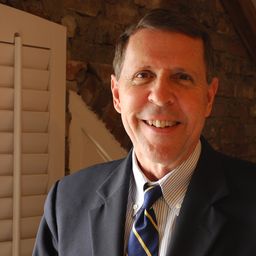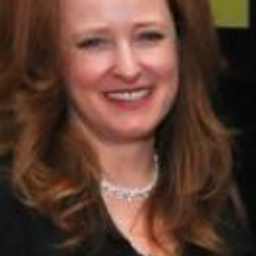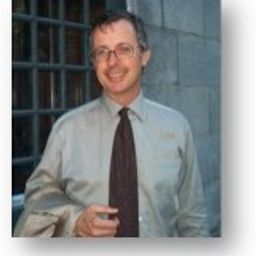
Dr. Alessandro Testa
Alessandro Testa (Isernia 1983) is a Lise Meitner Postdoctoral Research Fellow at the Department of European Ethnology, University of Vienna.
He has a background in Classics (Liceo Classico), History (Bachelor) and Religious Studies (Master) and has studied at several Italian and French Universities (Universities of Florence, Rome “Sapienza”, and Messina; École Pratique des Hautes Études and École des Hautes Études en Sciences Sociales in Paris). He received his Ph.D. from the University of Messina.
In 2012, he was Visiting Lecturer at the University of Tallinn, Estonia, where he taught a course in Historical Anthropology, and in 2014 he was for a short period Visiting Scholar al Max Planck Institute di Halle, Germany. Between 2013 and 2015, he worked as a Postdoctoral Researcher at the University of Pardubice, Czech Republic, where he also taught Anthropology of Religion and Anthropology of Cultural Heritage.
Alessandro Testa has so far published three books: Miti antichi e moderne mitologie(Rome 2010), Il carnevale dell’uomo-animale (Naples 2014), and Introduzione alla religiosità dei Sanniti (Isernia 2016). He is also the author of a conspicuous number of articles, chapters in volumes, and reviews. He has furthermore presented the outcomes of his research through lectures and oral contributions at universities and for conferences in numerous countries.
His main ethnographic fieldworks have been undertaken in Central Italy (2010-2011) and in the Czech Republic (2013-2014) and he is about to start a new one in Catalonia (2016-2017).
Il a étudié à Isernia (Lycée Classique), à Florence (Université de Florence), à Rome (Université « La Sapienza »), à Paris (École Pratique des Hautes Études et École des Hautes Études en Sciences Sociales) et à Messine (Université de Messine). Il a obtenu une Licence en Histoire (2007), un Master en Histoire des Religions (2009) et un Doctorat en Anthropologie (2013).
Ses travaux de recherche portent sur différents domaines tels que les religions du monde ancien, la méthodologie des sciences historiques et anthropologiques, l’anthropologie historique médiévale et moderne, l’anthropologie comparative des cultures populaires européennes, l’anthropologie des religions, l’anthropologie du patrimoine, l’anthropologie des rituels publiques et des fêtes.
Tout en continuant de s’occuper de problématiques historiques, à présent sa recherche ethnographique porte principalement sur la mémoire sociale et sur la construction des identités en Europe, et sur les phénomènes de reconfiguration, revitalisation et patrimonialisation du folklore – notamment dans l’Europe du sud et dans les pays postsocialistes. Jusqu’à maintenant, il a entrepris des enquêtes de terrain en Italie centrale (2010-2011) et en République Tchèque (2013-2014). Sa prochaine enquête ethnographique aura lieu en Catalogne (2016-2017).
Il a été Visiting Lecturer à l’Université de Tallinn en 2012. En 2014, il a passé une courte période de recherche comme Visiting Scholar auprès du Max Planck Institut for Social Anthropology de Halle/Saale. Entre 2013 et 2015, il a été chercheur postdoctoral à l’Université de Pardubice, en République Tchèque, tandis que maintenant il travaille à l’Université de Vienne.
Une liste de ses publications – qui comptent trois livres et plusieurs dizaines d’autres écrits – est consultable via le lien suivant.
Sessions in which Dr. Alessandro Testa participates
Saturday 4 June, 2016
Tuesday 7 June, 2016
Sessions in which Dr. Alessandro Testa attends
Friday 3 June, 2016
What does heritage change for tourism? | Le patrimoine, ça change quoi au tourisme? Ce débat veut interroger les relations entre le tourisme et le patrimoine et dépasser ainsi les idées reçues sur l'antagonisme entre le tourisme "corrupteur" et le patrimoine qui en serait la victime. Il s'agit donc de repenser le tourisme comme un réel acteur du patrimoine, de sa valorisation et de son appropriation, y compris par les populations locales. Cela présuppose, au p...
Welcome addresses and cocktail, followed by the Concordia Signature Event "The Garden of the Grey Nuns". As the opening ceremony and cocktail take place in the former Grey Nuns' Motherhouse, recycled into campus residence and reading rooms by Concordia University, delegates will also have the possibility to discover the video Three Grey Nuns (3 minutes, by Ron Rudin and Phil Lichti. Three Grey Nuns recount their memories of communal life in the Grey Nun’s Motherhouse. Built...
Saturday 4 June, 2016
What if we changed our views on heritage? And if heritage has already changed? While, on the global scene, states maintain their leading role in the mobilization of social and territorial histories, on the local scale, regions, neighbourhoods and parishes have changed. Citizens and communities too: they latch on to heritage to express an unprecedented range of belongings that no law seems to be able to take measures to contain, often to the discontent of...
Since the beginning of the 19th century religious buildings and artefacts of the West have been involved in a continuous process of musealization. In the time-period subsequent to the Second World War, the general forces of secularisation increasingly turned religious buildings, most of them churches, into heritage and substantial parts of Christian practices into history. On a global scale (Western), conservation and heritage practices have been applied on tangible and intangible expressions...
Most of what we experience as heritage emerges into conscious recognition through a complex mixture of political and ideological filters, including nationalism. In these processes, through a variety of devices (museums, scholarly research, consumer reproduction, etc.), dualistic classifications articulate a powerful hierarchy of value and significance. In particular, the tangible-intangible pair, given legitimacy by such international bodies as UNESCO, reproduces a selective ordering of cul...
Sunday 5 June, 2016
"What does heritage change?" is a multifaceted question to which the answer(s) are in primary respects related to real-life negotiations among different groups of citizens, cultures, races, ethnic groups, sexual identities, and social classes about received, official and/or widely accepted or accomodated intangible attributes, cultural traditions, historic monuments, buildings, and other transmitted or revived historical legacies. Heritage designated by and for whom, for what motivations, an...
Monday 6 June, 2016
Le patrimoine fait aujourd’hui l’objet d’attentions autant que d’agressions et de destructions. Cela peut s’expliquer par les difficultés de son identification ou de sa conservation. Cela peut plus profondément s’expliquer parce que, dès le départ, il célébre un événement ou conserve une mémoire qui peut être ou devenir une source de dissenssions et de conflits politiques. Enfin, sa reconnaissance suscite des gains économiques pour les uns mais des pertes pour les autres. Mais peut-être...
To celebrate our film series dedicated to heritage, sponsored by the Department of American Studies at the University of Maryland and the United States Chapter of the Association of Critical Heritage Studies, this event will spotlight the iconic Sugar Shack, which is rooted from Quebec to New-England and which is both the place of maple syrup production and of friendly gatherings during the maple syrup season. In a festive atmosphere, delegates will be invited to taste one of the essential of...
Tuesday 7 June, 2016
Le concept de patrimoine culturel immatériel (PCI) a fait l’objet de nombreux colloques et publications depuis la promulgation de la Convention pour la sauvegarde du patrimoine culturel immatériel de l’UNESCO en 2003, voire même avant. Toutefois, peu d’entre eux se sont attardés à la question de l’impact réel des systèmes et politiques mis en place pour favoriser le développement des pratiques culturelles transmises de génération en génération comme les arts et l’artisanat traditionnels, les ...
While historical churches are being abandoned all over the Christian West, more and more places are growing the opposite way: pilgrimage sites are being enlarged and enhanced, whole urban districts are being developed with churches and temples boasting diverse, and often unorthodox, religious practices. Epistemologically linked to heritage, the sacred now seems to follow a path of its own, staging itself in new settings where the “religious heritage” refers mostly to common practices, however...
The closing dinner of the conference, called “Pawâ” according to a French-Canadian tradition borrowed from the Native American lexicon, will be an opportunity to discover, in the heart of the Old Port of Montreal, an original culinary creation by the caterer Agnus Dei, from the renowned Maison Cartier-Besson in Montreal, leader in its field for its boundless creativity and event expertise. The dinner, in the form of stations, will offer delegates an exploration of Quebecois culinary heritage,...
















